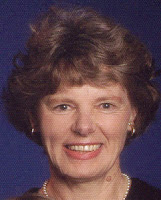By Deborah H. Bateman
As a writer it is easy to get caught up in doing all the things that go along with being a writer besides writing our books, such as: blogging, marketing, social media, writing conferences, speaking, etc. The list can go on and on. If we aren’t careful we can become obsessed with all of it and forget that we are human beings with many other needs including spiritual, physical, mental, emotional, and financial.
Many of us have other roles to play in our lives. We may be parents, spouses, and some of us even employees. We have families to care for, relationships to tend to, and a house to clean, just to mention a few. We have to remember that writing is not our life; it is a part of our life. If we aren’t careful it can consume our lives and cause us to sacrifice some of the things that are most important to us.
__________________________________________________________________
Deborah H.Bateman is an Author, publisher, blogger and website designer. She is the founder of Christian Daily Resources, a Christian online ministry dedicated to "Sharing God's Word." Deborah was born and raised in South Carolina, where she still resides with her husband. She has two beautiful daughters and five precious grandchildren. Besides writing and publishing books, Deborah enjoys cooking, interior decorating, and crafts. Deborah is the author of the books in the Daily Bible Reading Series. Deborah's Daily Bible Reading blog has been moved to her author site at: http://DeborahHBateman.com/blog. She is also the author of Bible Verse Tweet blog where she shares daily Bible studies and Bible verses at http://bibleversetweet.com You can check out her website at: http://ChristianDailyResources.com. Deborah enjoys "Sharing God's Word" and empowering others to share their message. Deborah's author site at: http://DeborahHBateman.com/. Deborah has a blog on her author site where she shares Daily Bible Reading and some self-publishing tips, digital publishing tips, indie publishing tips, book marketing tips, writing tips, and social media tips check it out at: http://DeborahHBateman.com/blog
Deborah H.Bateman is an Author, publisher, blogger and website designer. She is the founder of Christian Daily Resources, a Christian online ministry dedicated to "Sharing God's Word." Deborah was born and raised in South Carolina, where she still resides with her husband. She has two beautiful daughters and five precious grandchildren. Besides writing and publishing books, Deborah enjoys cooking, interior decorating, and crafts. Deborah is the author of the books in the Daily Bible Reading Series. Deborah's Daily Bible Reading blog has been moved to her author site at: http://DeborahHBateman.com/blog. She is also the author of Bible Verse Tweet blog where she shares daily Bible studies and Bible verses at http://bibleversetweet.com You can check out her website at: http://ChristianDailyResources.com. Deborah enjoys "Sharing God's Word" and empowering others to share their message. Deborah's author site at: http://DeborahHBateman.com/. Deborah has a blog on her author site where she shares Daily Bible Reading and some self-publishing tips, digital publishing tips, indie publishing tips, book marketing tips, writing tips, and social media tips check it out at: http://DeborahHBateman.com/blog






























